
DEFA was the state-owned film studio of the German Democratic Republic throughout the country's existence.

Konrad Wolf was an East German film director. He was the son of writer, doctor and diplomat Friedrich Wolf, and the younger brother of Stasi spymaster Markus Wolf. "Koni" was his nickname.

Friedrich Wolf was a German doctor and politically-engaged writer. From 1949 to 1951, he served as East Germany's first ambassador to Poland.
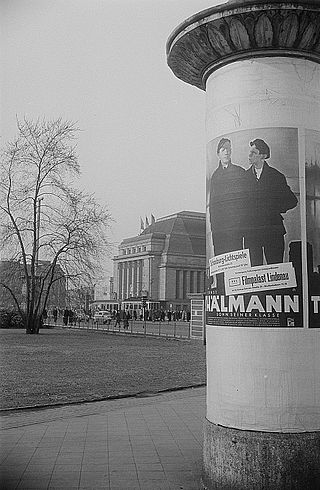
Ernst Thälmann is an East German film in two parts about the life of Ernst Thälmann, leader of the Communist Party of Germany during much of the Weimar Republic, directed by Kurt Maetzig and starring Günther Simon in the title role. The first part, Ernst Thälmann - Sohn seiner Klasse, was released in 1954. It was followed by the 1955 sequel. Ernst Thälmann - Führer seiner Klasse.

Kurt Maetzig was a German film director who had a significant effect on the film industry in East Germany. He was one of the most respected filmmakers of the GDR. After his retirement he lived in Wildkuhl, Mecklenburg, and had three children.

Stars is a 1959 film directed by Konrad Wolf. It tells the story of a Nazi officer who falls in love with a Greek Jewish girl while escorting Jewish prisoners through Bulgaria to a concentration camp. The film won the Special Jury Prize at the 1959 Cannes Film Festival.
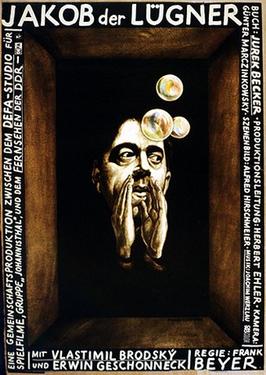
Jacob the Liar is a 1975 war drama film directed by Frank Beyer, adapted by Beyer and Jurek Becker from the latter's novel of the same title. Set in Nazi-occupied Poland during the Holocaust, the film centers on Jakob Heym, a Polish Jew who attempts to raise the morale inside the ghetto by sharing encouraging rumors that he claims he has heard on an (imaginary) radio. The film was a co-production between East Germany and Czechoslovakia. It premiered on East German television on 22 December 1974, and was released theatrically on 18 April 1975.
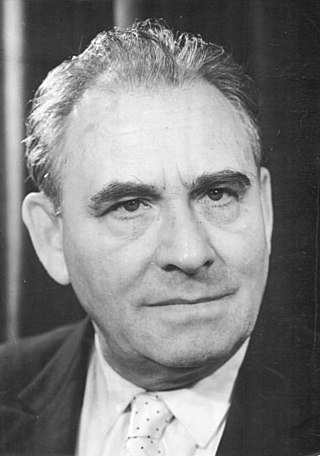
David Hirsch, known as Wolfgang Heinz, was an Austrian and East German actor and theater director. He served as President of the Academy of the Arts in Berlin between 1968 and 1974.
Girls in Gingham —sometimes called Beaverskin—is a 1949 German drama film directed by Kurt Maetzig.

Naked Among Wolves is a 1963 East German film directed by Frank Beyer and starring Erwin Geschonneck and Armin Mueller-Stahl. The film is based on author Bruno Apitz's 1958 novel by the same name. The film was remade in 2015 under the direction of Philipp Kadelbach.
Star-Crossed Lovers is a 1962 East German romantic war drama film directed by Frank Beyer.
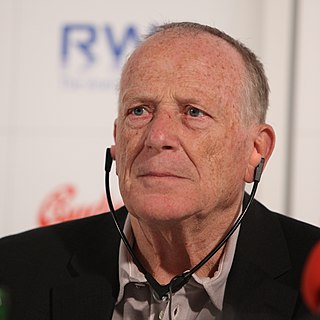
Wolfgang Kohlhaase was a German screenwriter, film director, and writer. He was considered "one of the most important screenwriters in German film history", and was one of the GDR's most well-known and prolific film screenwriters. Kohlhaase was awarded the Honorary Golden Bear at the 2010 Berlin International Film Festival.

The Adventures of Werner Holt is a 1965 East German drama film directed by Joachim Kunert.
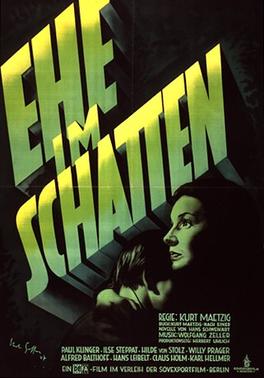
Marriage in the Shadows is 1947 German melodrama film directed by Kurt Maetzig and starring Paul Klinger, Ilse Steppat and Alfred Balthoff. It was produced in the Soviet zone in what later became East Germany and was released by DEFA. The film was described as an "attempt to confront the German people about the morals of the past", being the first film to confront the people about the persecution of the Jews and the atrocities conducted during World War II.
Der Rat der Götter is an East German black-and-white film, directed by Kurt Maetzig. It was released in 1950.
The Kaiser's Lackey is a 1951 East German film directed by Wolfgang Staudte, based on Heinrich Mann's 1918 satirical novel by the same name.

The Rabbit Is Me is an East German dramatic film directed by Kurt Maetzig. Based on the novel by Manfred Bieler, it was filmed in 1965.

Professor Mamlock is a 1938 Soviet drama film, directed by Herbert Rappaport and Adolf Minkin. It is one of the earliest film directly dealing with the persecution of Jews in Nazi Germany.

Professor Mamlock is a theater play written by Friedrich Wolf in 1933. Portraying the hardships a Jewish doctor named Hans Mamlock experiences under the Hitler regime, it is one of the earliest works dealing with Nazi antisemitism.
Ralf Kirsten was a German film director and screenwriter. He directed 22 films between 1955 and 1986. His 1984 film Where Others Keep Silent was entered into the 14th Moscow International Film Festival.
















